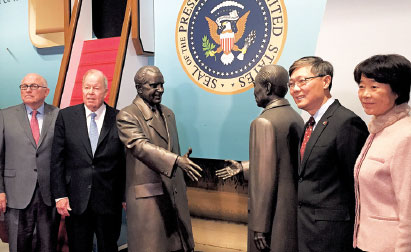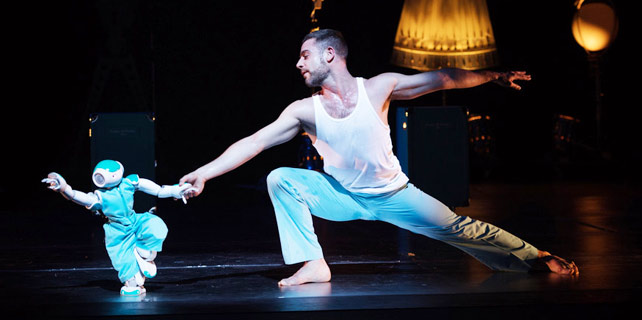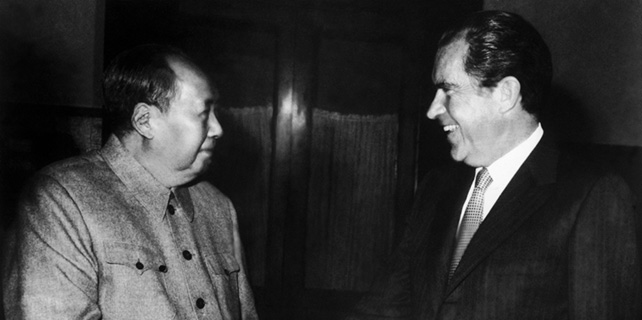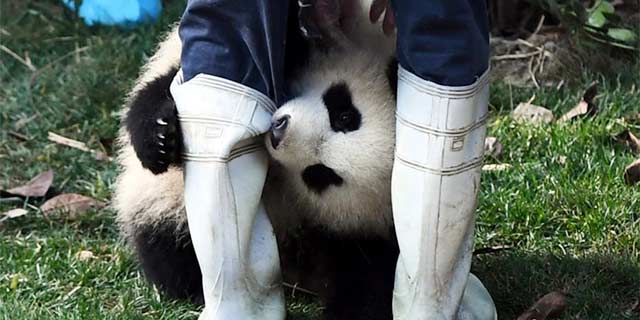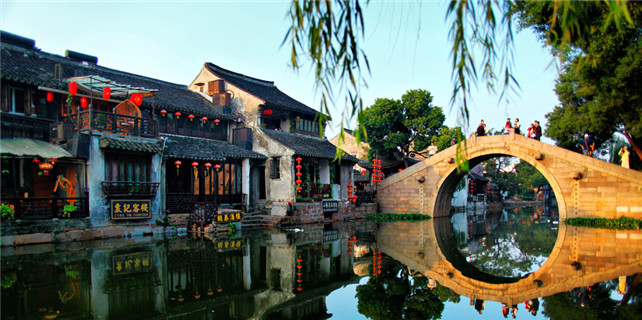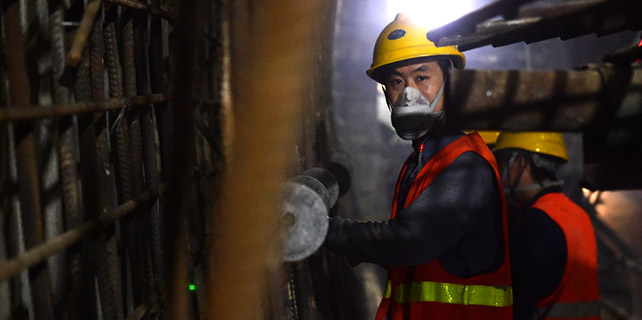Shanghai Communique's role still resonates
|
Liu Jian (second from right), Chinese consul general in Los Angeles, poses on Tuesday in front of the statue depicting the historic handshake between US President Richard Nixon and Chinese Premier Zhou Enlai in 1972. Joining Liu are (from left): Bill Baribault, president of the Richard Nixon Foundation; James Cavanaugh, vice-chairman of the Board of the Richard Nixon Foundation, and Liu's wife Chen Xiaolin. Chang Jun / China Daily |
The China-US Joint Communique, or the Shanghai Communique, will continue to play an important role in guiding the development of bilateral relations, open communications and help resolve many problems and reconcile conflicts between the world's two largest nations, attendees at a ceremony held on Tuesday said.
At the Richard Nixon Presidential Library and Museum in Yorba Linda, California, about 30 representatives from political, research and business circles of China and the US gathered to commemorate the 45th anniversary of the signing and inception of the important diplomatic document which was issued on Feb 28, 1972, during Nixon's historic visit to China.
"Although it has been 45 years since China and the US signed the Shanghai Communique, the document still has a far-reaching impact on the future development of our bilateral relations, one of the most important bilateral relationships in the world," said Liu Jian, China's consul general in Los Angeles, who attended the ceremony.
"We must thank our old leaders for their vision and wisdom," he added. "Through the communique, our two governments clarified their stance on the Taiwan issue and made it very clear that there is only one China," he added.
The first US president to visit the Asian nation, Nixon in 1972 made a one-week visit to China at the invitation of the then-Premier Zhou Enlai, a trip he later described as "the week that changed the world."
During his stay, leaders on both sides expressed a desire for a normalized relationship after 25 years of separation and isolation. Working through days and nights, Nixon and his team put their heads together with Chinese counterparts in order to hammer out the very first diplomatic document between China and the US that would serve as the guiding framework for US-China relations.
The communique particularly touched upon the Taiwan issue. Its wording reads: "The United States acknowledges that all Chinese on either side of the Taiwan Straits maintain there is but one China and that Taiwan is a part of China. The United States government does not challenge that position."
Christopher Cox, Nixon's grandson, said the China-US relationship in the past 45 years has undergone tremendous changes and progress is taking place through a wide spectrum of fields including politics, trade, culture, and people-to-people communications.
"What my grandfather did in 1972 is so important that we should carry the spirit forward as we consider a healthy and strong relationship between the US and China in the 21st century," he added.
China and the US share the responsibility to maintain international peace and promote world prosperity, Liu said, adding both sides need to focus on concrete issues in order to cement the relationship following the recent telephone conversation between President Xi Jinping and President Donald Trump, when the two had candid discussions on international and domestic issues.
William Baribault, president and CEO of the Richard Nixon Foundation, along with Liu's wife Chen Xiaoling, former consul general of China in Ontario, and Robert Sun, founder and president of American-Chinese CEO Society, chaired the luncheon held after the ceremony.
junechang@chinadailyusa.com







